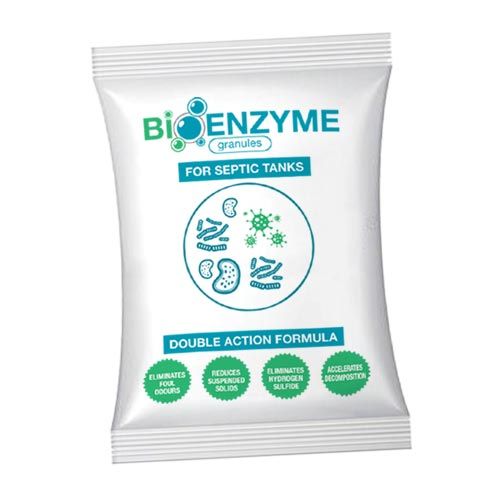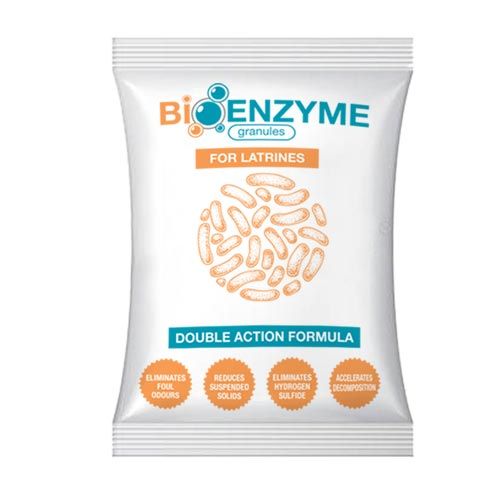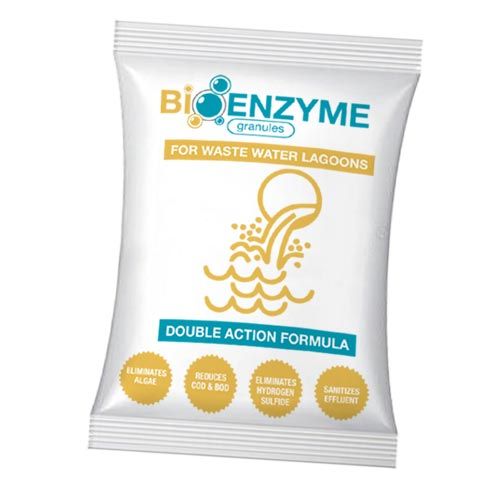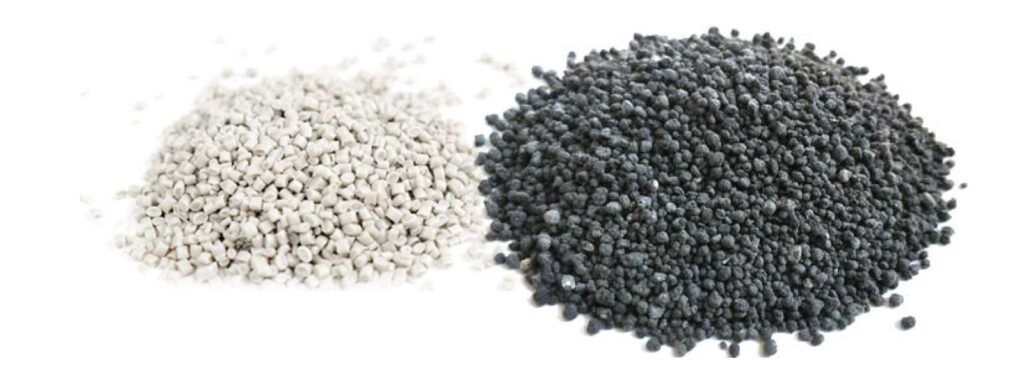Between 56-80% of municipal solid waste is organic, most of which is food waste. Only a fraction of organic waste is recycled in Kenya- lofty plans for using municipal solid waste (a process with the potential of wiping out the 3000 tons of MSW generated in Nairobi, Kenya’s capital city, daily) have never seen the light of day.
Cheap electricity from Kenya’s vast geothermal resources and the removal of Feed-in-Tariffs (FiTs) that incentivized independent power producers to venture into clean energy projects also rendered large-scale waste-to-energy projects commercially unviable.
Investment in sewer infrastructure has failed to match urban sprawl, even with the liberalization of the water sector. The result?
Growing volumes of solid waste and fecal sludge/wastewater easily overwhelm existing management and recycling capacity.
And that is where microbe treatments come in.



Microbe treatments are specially formulated granules that accelerate the degradation/decomposition of organic matter in solid waste or wastewater. The granules also correct chemical imbalances, eliminate algae and accelerate reduction of impurities in waste water rending the water safe for discharge into natural waterways.
The main benefactors of microbe treatment are water authorities and private institutions that operate waste water lagoons. The granules enable waste water lagoons to increase their water treatment throughput without costly infrastructure investments in capacity.
Case studies revealed waste water lagoons reduced treatment times from 42 days to 8 days, increasing the lagoons’ treatment capacity almost five-fold.
In the case of domestic and medium scale users, microbe treatments are customized for different applications (latrines, septic tanks) – where these waste receptacles are structurally compromised, microbe treatments accelerate decomposition of waste thus reducing stress on sanitation structures.


Pingback: MyBlog
Pingback: buying androxal australia price
Pingback: online order enclomiphene cheap real
Pingback: rifaximin
Pingback: cheapest canada xifaxan mail order
Pingback: how to buy staxyn generic for sale
Pingback: buying avodart generic from the uk
Pingback: lowest price dutasteride canada
Pingback: online order flexeril cyclobenzaprine price in us
Pingback: how to order gabapentin generic in canada
Pingback: get fildena cheap real
Pingback: cheap itraconazole purchase online uk
Pingback: kamagra na dobírku přes noc
Pingback: acheter kamagra en ligne sans approbation dr